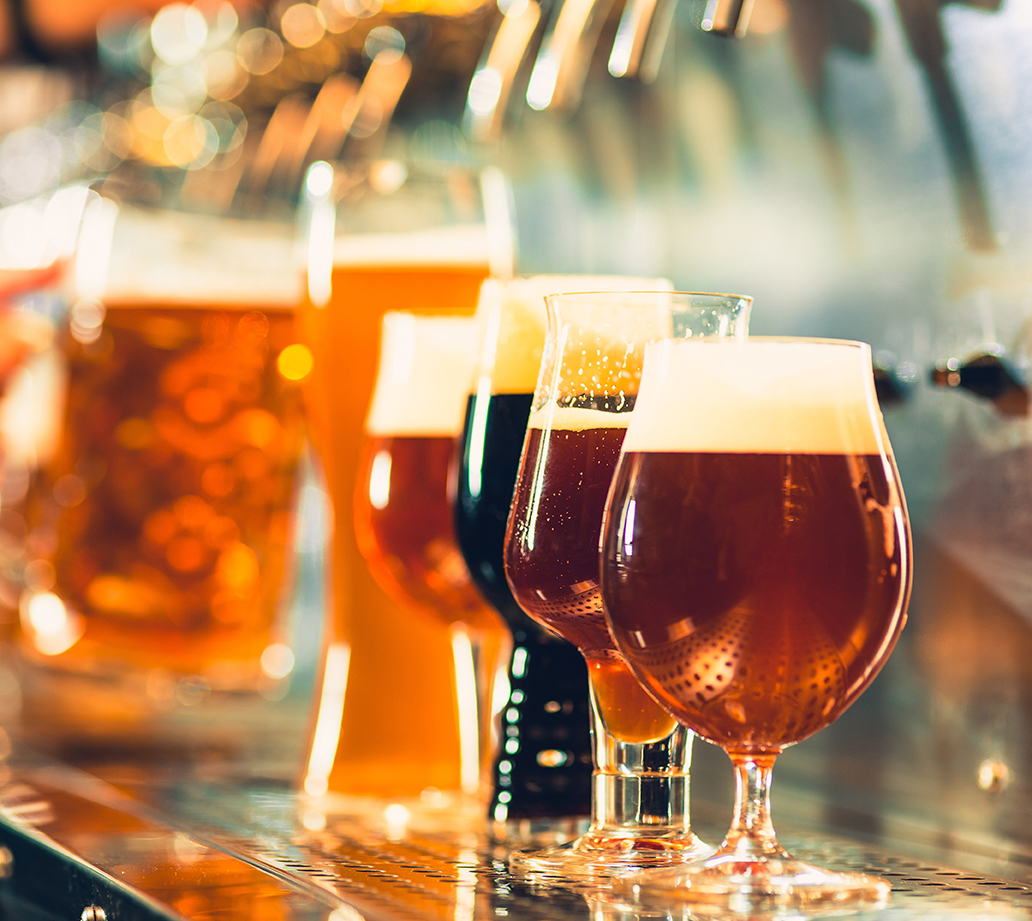 INDUSTRIAS ALIMENTOS Y BEBIDAS CLUSTER
INDUSTRIAS ALIMENTOS Y BEBIDAS CLUSTER
Cervecerías.
La cerveza es la bebida alcohólica preferida por la mayoría de las personas en el mundo. Elaborada a partir de los granos de la cebada y/u otros cereales como el trigo, arroz y maíz, que se fermentan en agua con levadura.
En el mundo existe una extensa variedad de tipos de cerveza, la distinción entre estos va más allá de un simple color, más bien tiene que ver con la forma de fermentarse. De acuerdo con el tipo de levadura, temperatura y forma de fermentación se puede clasificar en tres grandes familias:
1) Ale. Alta fermentación. Temperatura entre 15 y 25 °C.
2) Lager. Baja fermentación. Temperatura entre 5.9 °C.
De esta clasificación se desprenden decenas de estilos de todos los aromas, colores y sabores.
En ECN Automation contamos con soluciones para todos sus procesos de elaboración:

Recepción de grano y malta
La recepción de granos y malta, son algunos de ingredientes más importantes para la elaboración y nacimiento de la cerveza.
Recepción de grano y malta
 12.49.19.png)
Sala de cocción
El cocimiento de los granos y maltas es el corazón de la cervecería y es responsable por una serie de etapas fundamentales para la elaboración de una cerveza de calidad.
Sala de cocción
 12.50.32.png)
Fermentación
El objetivo de la fermentación es producir alcohol. Teniendo en cuenta el estado en el que se encuentra la levadura, se controla el nivel de suministro de oxígeno a fin de conseguir la velocidad óptima de crecimiento de la población de levadura. Una medición de temperatura fiable es clave durante el proceso completo para garantizar una calidad homogénea en todos los lotes.
Fermentación
 12.52.42.png)
Filtración
El desafío principal del proceso de filtración convencional está relacionado con la filtración con tierra de diatomeas porque la calidad de la tierra de diatomeas puede variar. Su tratamiento y desechado son problemáticos porque es una sustancia tóxica y genera grandes cantidades de efluente.
Filtración
 12.53.58.png)
Envasado
La función del envasado es proteger la cerveza de factores como la humedad y contaminantes ambientales. Antes de embotellar o enlatar la cerveza o envasarla en barriles, con frecuencia se somete a un tratamiento de calor para terminar con cualquier microorganismo existente. Los sistemas de calentamiento a corto plazo, pasteurizadores flash son utilizados para tal fin.
Envasado
 12.57.01.png)
Optimización de la limpieza in situ (CIP)
La concentración utilizada para la limpieza CIP es un factor crítico para la seguridad alimentaria, y a la vez determina en gran parte el uso de detergente y aguas residuales.
Proceso CIP
 12.58.17.png)